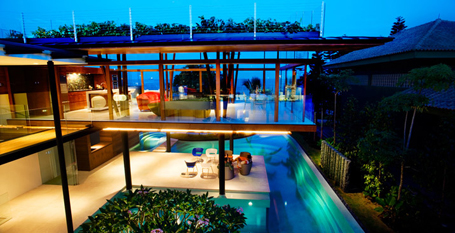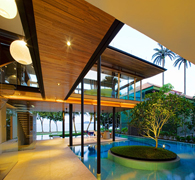
Mention Singapore and mental images are apt to flash immediately to skyscrapers and gigantic retail emporia. Less heralded are the sea-fronting properties along the east coast and on nearby Sentosa island. Yes, the beaches here are decidedly puny and much of it is artificial, having been carved out of reclaimed land; but from the right vantage point, the views of the South China Sea and the gathering horizon are peerless. And in a country as small as Singapore, the opportunities for staking such a view have become increasingly rare.
The Sentosa House by Singapore-based architect Guz Wilkinson sits on a 726sqm flat piece of land that faces the sea. The brief from the client, an Australian couple, was simply to maximize the view.
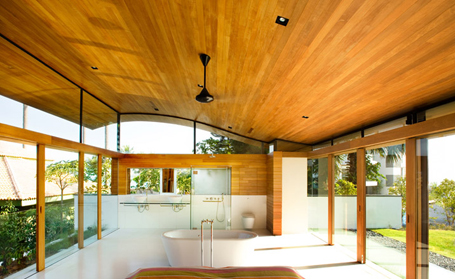
Wilkinson's solution - two transparent wings that create a flow of cool, natural ventilation, light and unimpeded views, especially from the master bedroom - was to turn the traditional floor-plan of two-storey house on its head.
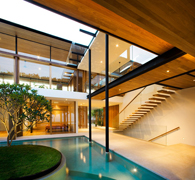
'We tried to maximise the drama of the site by putting the living area and master bedroom upstairs with the best view and breezes,' Wilkinson says. 'Generally, the house is based on a tropical open plan design with the main living spaces pulled apart to maximise views, breeze and contact with nature.'
As much space as possible - media room, secondary bedrooms and wine cellar included - was moved downstairs while energy conservation, Wilkinson's pet project, is achieved with a roof garden and a rear roof that's embedded with photovoltaic cells that help power the house.
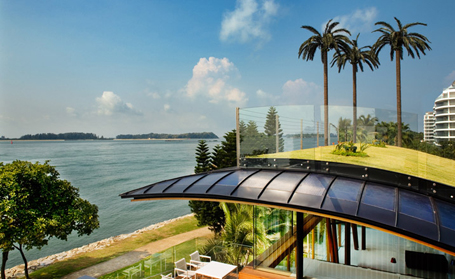
Constructed where possible from dark timber and other natural materials, the Sentosa House reflects Wilkinson's love of nature. 'I try hard to make the transition between the inside and outside of a house as seamless as possible,' he says, by way of explaining why the living room is central to the house and why it's so transparent. Or indeed, why his 13-year old, six-member strong firm remains busy building residential homes in far-flung and exotic spots like New Zealand, Oman and Bali alongside a resort project in the Maldives.
'I think the lack of green space in Singapore explains the way we react in creating homes that have, at least, a tentative link with nature.'
The article is republished with permission from Wallpaper.com

